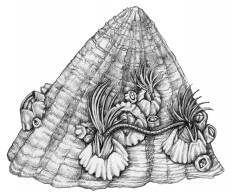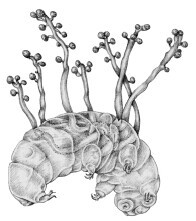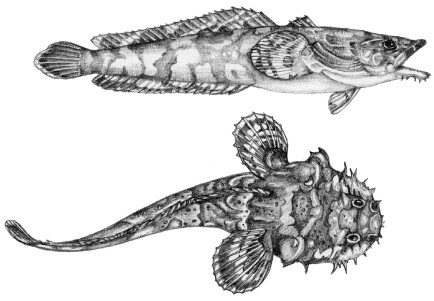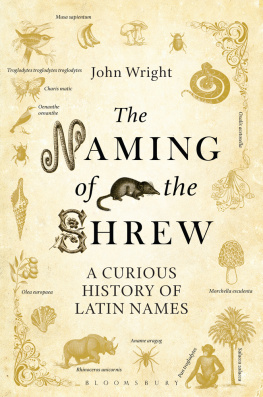John Wright - The Naming of the Shrew: A Curious History of Latin Names
Here you can read online John Wright - The Naming of the Shrew: A Curious History of Latin Names full text of the book (entire story) in english for free. Download pdf and epub, get meaning, cover and reviews about this ebook. year: 2014, publisher: Bloomsbury Publishing, genre: Detective and thriller. Description of the work, (preface) as well as reviews are available. Best literature library LitArk.com created for fans of good reading and offers a wide selection of genres:
Romance novel
Science fiction
Adventure
Detective
Science
History
Home and family
Prose
Art
Politics
Computer
Non-fiction
Religion
Business
Children
Humor
Choose a favorite category and find really read worthwhile books. Enjoy immersion in the world of imagination, feel the emotions of the characters or learn something new for yourself, make an fascinating discovery.
- Book:The Naming of the Shrew: A Curious History of Latin Names
- Author:
- Publisher:Bloomsbury Publishing
- Genre:
- Year:2014
- Rating:5 / 5
- Favourites:Add to favourites
- Your mark:
- 100
- 1
- 2
- 3
- 4
- 5
The Naming of the Shrew: A Curious History of Latin Names: summary, description and annotation
We offer to read an annotation, description, summary or preface (depends on what the author of the book "The Naming of the Shrew: A Curious History of Latin Names" wrote himself). If you haven't found the necessary information about the book — write in the comments, we will try to find it.
The Naming of the Shrew: A Curious History of Latin Names — read online for free the complete book (whole text) full work
Below is the text of the book, divided by pages. System saving the place of the last page read, allows you to conveniently read the book "The Naming of the Shrew: A Curious History of Latin Names" online for free, without having to search again every time where you left off. Put a bookmark, and you can go to the page where you finished reading at any time.
Font size:
Interval:
Bookmark:
It is impossible to write any book of this type without help, and I have been most fortunate in finding a large number of erudite, charming and, just as important, willing, specialists to provide it. The assistance they have given me has been unstinting and I am extremely grateful to them all. Foremost among my many advisors on matters technical is David Hawksworth. He has been generous in his suggestions and agreeably ruthless in saving me the embarrassment of the many howlers that appeared in early drafts. I also wish to thank Ole Seburg for guiding me through the opaque waters that are cladistics. Greg Kenicer, Juliet Brodie, Richard Fortey, Stewart McPherson, Tim Bailey, Graham Elmes, Phil Sterling, Bryan Edwards, Graham Elmes, Jenny Clack, Craig Rudman, Gavin Prideaux, Mike Richardson, Max Coleman, Mike Gardner, Roy Watling, John McNeill, Neville Kilkenny, Alan Hills and the staff of the Linnean Library all provided me with advice and stories. They are, in a way, the heroes of this book, for these are the mycologists, zoologists, botanists, phycologists and academics who use and often devise Latin names.
Thank you to Polly Winsor and Staffan Mueller-Wille for explaining the vagaries of Linnaean philosophical thought to me.
Many other people, notably Pip Taylor, have offered stories and advice and I thank them all.
I am grateful to Eugenio Donadoni who played the part of my tutor of old, Dr Parker, in correcting my terrible Latin. If there is still something wrong with it, blame me, not Eugenio. I am a poor pupil.
The Bloomsbury team have tolerated me with undeserved patience and kindness, and shown absolute professionalism in their determination to make this book as good as possible. Thank you to Richard Atkinson for having faith, Natalie Bellos for guiding the whole project and reading endless drafts (well, they turned out to be drafts), Alison Glossop for her detailed attention to the proofs and Rachael Oakden who re-ordered my jumbled text with great sensitivity, corrected mistakes that still keep me awake at nights and allowed so many of my jokes. I hope Rachael has recovered from the stories contained in the section on rude Latin names. Thank you to Steve Cox for his careful work on the pages and in particular for a bright idea which had passed me by but now finds itself in the book. I am delighted with the lovely, intricate drawings that grace the beginning of each chapter. These are the work of the highly talented Lizzie Harper. Thank you Lizzie.
I would like to thank Rob Love, Antony Topping and Hugh Fearnley-Whittingstall for giving me the chance to do what I now do. Gratitude is also due to my agent, Gordon Wise of Curtis Brown, for his invaluable advice and tireless encouragement.

Amphibalanus improvisus

John Wright is a passionate natural historian and the author of the River Cottage Handbooks Mushrooms , Edible Seashore , Hedgerow and Booze . He gives lectures on natural history and every year he takes around fifty forays, showing people how to collect food from hedgerow, shore, pasture and wood. Fungi are his greatest passion and he has fifty years experience in studying them. John Wright is a member of the British Mycological Society and a Fellow of the Linnaean Society. He lives in rural west Dorset with his wife and two daughters.

Ballocephala verrucospora


Batrachoides pacifici

Aristotle, the works of Aristotle translated into English, Vol. IV, Historia Animalium , translated by DA. W. Thompson (Clarendon Press, 1910).
Bailey, T., Miraculum Naturae: Venuss Flytrap (Trafford Publishing, 2008).
Bernhardt, P., Gods and Goddesses in the Garden (Rutgers University Press, 2008).
Blamey, M. and R. Fitter, The Wild Flowers of Britain and Northern Europe (Collins, 1979).
Blunt, W., The Compleat Naturalist: a Life of Linnaeus (Collins, 1971).
Brown, R. W., Composition of Scientific Words (Smithsonian Books, 2000).
Gledhill, D., The Names of Plants (Cambridge University Press, 1985).
Greene, E. L., Landmarks of Botanical History , edited by F. N. Egerton (Stanford University Press, 1983).
Grigson, G., The Englishmans Flora (Helicon, 1996).
International Commission on Zoological Nomenclature, International Code of Zoological Nomenclature (ICZN, 1999).
Jeffrey, C., An Introduction to Plant Taxonomy (Cambridge University Press, 1982).
Linnaeus, C., A Tour in Lapland , translated by J. E. Smith (British Library, 2011).
Linnaeuss land and Gotland Journey , translated by M. sberg and W. Stearn (Linnean Society, 1973).
Philosophia Botanica , translated by S. Freer (Oxford University Press, 2003).
Mayr, E., The Growth of Biological Thought (Belknap Press, 1982).
McNeill, J., International Code of Nomenclature for Algae, Fungi and Plants (Koeltz Scientific Books, 2012).
Ogilvie, B. W., The Science of Describing: Natural History in Renaissance Europe (University of Chicago Press, 2006).
Pavord, A., The Naming of Names (Bloomsbury, 2005).
Pliny, the Elder, Natural History , introduction by A. T. Grafton, translated by H. Rackham (Folio Society, 2012).
Raven, C. E., John Ray, Naturalist, His Life and Works (Cambridge University Press, 1942).
Savory, T. H., Naming the Living World , an Introduction to the Principles of Biological Nomenclature (English Universities Press, 1962).
Stace, C., New Flora of the British Isles (Cambridge University Press, 2010).
Stearn, W., Botanical Latin (David and Charles, 1973).
Stearns Dictionary of Plant Names for Gardeners (Cassell, 1992).
Theophrastus, De Causis Plantarum , edited and translated by B. Einarson and G. Link (Loeb Classical Library 198990).
Theophrastus and F. Wimmer, Historia Plantarum (Kessinger Publishing, 2010).
Tudge, C., The Variety of Life: A Survey and a Celebration of All the Creatures That Have Ever Lived (Oxford University Press, 2000).
Turland, N., The Code Decoded: a Users Guide to the International Code of Nomenclature for Algae, Fungi and Plants (Koeltz Scientific Books, 2013).
White, T. H., The Book of Beasts, Being a Translation from a Latin Bestiary of the Twelfth Century (Cape, 1954).
Wilkins, J. S., Species: A History of the Idea (University of California Press, 2009).
Winston, Judith E., Describing Species (Columbia University Press, 1999).
The authors and publishers acknowledge the following permissions to reprint copyright material:
The quotations are taken from The Compleat Naturalist by Wilfrid Blunt, published by Frances Lincoln Ltd., 2002, and are reproduced by permission of Frances Lincoln Ltd. and the Curtis Brown Group Ltd. on behalf of the Estate of Wilfrid Blunt. Copyright the Beneficiaries of the Literary Estate of Wilfrid Blunt 1971
The quotations are taken from Philosophica Botanica by Linnaeus, translated by Freer (2003), and are reproduced by permission of Oxford University Press.
The quotations are taken from Musa Cliffortiana Cliffords Banana Plant by Linnaeus, translated by Freer (2007). Reproduced by permission of Regnum Vegetabile and Frederica Freer.
Next pageFont size:
Interval:
Bookmark:
Similar books «The Naming of the Shrew: A Curious History of Latin Names»
Look at similar books to The Naming of the Shrew: A Curious History of Latin Names. We have selected literature similar in name and meaning in the hope of providing readers with more options to find new, interesting, not yet read works.
Discussion, reviews of the book The Naming of the Shrew: A Curious History of Latin Names and just readers' own opinions. Leave your comments, write what you think about the work, its meaning or the main characters. Specify what exactly you liked and what you didn't like, and why you think so.
















